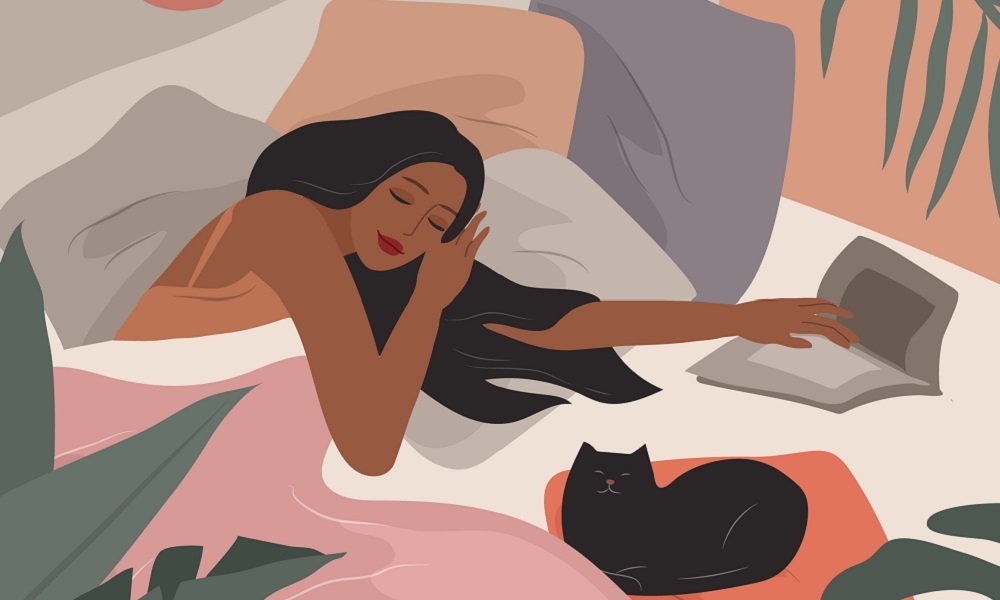Sleep is essential for your health – it refreshes the mind and repairs the body. But how much sleep do you need to thrive? And, what can you do to ensure you get a good night’s rest?
Research from the Sleep Health Foundation found that four in 10 Australian adults experience some form of inadequate sleep, which, in turn, affects learning and decision-making, as well as increasing the risk of mental and physical illness (Deloitte Access Economics, 2017).
Of the 7.4 million people who frequently suffered from inadequate sleep in this study:
- 1.1 million reported having a sleep disorder like insomnia and obstructive sleep apnoea;
- 2.5 million had health problems that affect their sleep; and,
- 3.8 million routinely failed to get enough sleep, often suffering side effects of sleep deprivation.
Dr Kathleen Maddison is a Research Fellow and Lecturer at the Centre for Sleep Science at the University of Western Australia. She is also a Research Fellow in the Department of Pulmonary Physiology and Sleep Research at Sir Charles Gairdner Hospital in Perth.
She says that sleep is incredibly important for our overall health, and when done badly it can have really detrimental effects.
‘In terms of your overall physical health, we know that sleep is important for rest and repair. A lot of your growth hormone is secreted at night during different stages of sleep, so all your growth and repair and restoration happens during this stage of the day,’ she tells Wellbeing by Teacher. ‘We also know that it’s super important for reaction time and accuracy and that it also helps with strength and balance.’
Sleep can also help with immune function and helps to improve inflammation across the body. And it helps with heart health, maintaining good blood pressure and good insulin control, Maddison says.
‘A lot of hormones are released and balanced overnight and require good sleep for that. So maintaining healthy weight is obviously really important and you need good sleep to do that too. Your two main hormones, your Leptin and Ghrelin, which are associated with being full and hungry, are moderated overnight and reset overnight,’ she explains.
Sleep and mental health and mood
Having a good night’s rest is critical to your day-to-day functioning, and impacts the way you interact with the world.
‘You know when you’ve had a bad night’s sleep, and your mood is down, your ability to respond to stressful cues is reduced, you snap a bit easier than normal. We know that sleep is super important for your overall wellbeing in terms of your mental health and anxiety,’ Maddison says.
‘Poor sleep is linked to increased risk of depression, anxiety, but we also know that people who struggle with these disorders, if they have poor sleep they flare up, and also often these disorders can interrupt their sleep.’
Having adequate sleep gives you the best chance of being resilient throughout the day and feeling energised, Maddison says. It can also help with your memory.
‘We also know that during sleep, when you’re sorting memories and this memory retention and learning is very important and sleep is key to that, associating positive emotions to memories happens in certain stages of sleep it’s believed. If you don’t have all these stages, then you lose that ability to associate positive emotions to those memories which would obviously impact your next day and future as well.’
Poor sleep and chronic health problems
There is a significant difference between having a bad night’s rest (or restricted sleep) and sleep deprivation.
‘Restricted sleep is linked to a high body weight, which is potentially linked to poor food choices, which is part of that mood and mental health,’ Maddison explains.
‘We know that inadequate sleep or reduced sleep is also one of the mitigating factors for hormone imbalances and these are often linked to heart disease, issues with blood pressure, increased risk of stroke, trouble controlling diabetes and glucose metabolism – so that is the insulin sensitivity I was talking about – increased risk of depression is associated it as well; so those are the long-term consequences of restricted sleep.’
When you miss a full night’s sleep, you experience sleep deprivation and go into sleep debt, Maddison explains.
‘You can’t bank sleep; you can’t sleep 24 hours today and then eat into it tomorrow. You will go into debt and then you’ll need to catch up, so to do that is quite hard. The short-term risk is sleep fatigue. So, a huge risk on the body is people driving and inattention – if you’re driving on the road with someone who hasn’t slept all night … their reaction time is equivalent to a blood alcohol content of 0.05, so we would not let them drive, we know their reaction time is reduced,’ she says.
‘And also people who have been through severe sleep deprivation start to hallucinate and eventually their body will put them into sleep and they will grab sleep whether they’re allowed to have it when they’re driving on the road, or not.’
The optimal amount of sleep
People often want to know if there’s a magic number on the optimal amount of sleep adults need to thrive. Maddison says this is a bit of a contentious issue and it changes over the course of your life.
Newborns need a lot more sleep than adults, and it’s recommended they have between 14 and 18 hours of sleep over the course of the day and night. Teenagers are recommended to have eight to 11 hours of sleep, and adults between seven and 10. There is a bit of variability though, and Maddison says that it’s often something you need to determine for yourself.
‘I think that’s where people need to be honest with themselves and I think people need to not be proud of “I only had six hours of sleep last night” and wear it as a badge of honour. I think that society needs to change that thought process,’ she says. ‘People can survive on a lot less sleep, they’re just not thriving.’
Distinct stages of sleep
Understanding the distinct stages of sleep can be quite complicated. In simple terms, Maddison breaks it down into two main components, non-rapid eye movement sleep (non-REM) and rapid eye movement sleep (REM).
‘Non-rapid eye movement sleep is your body restorative sleep. So, during this stage of sleep you can still move but you often don’t, your heart rate slows down, your body temperature settles and this is the stage of sleep where your body is repairing a little bit. So a lot of hormones are produced in this stage of sleep. Not a lot of dreaming happens in this sleep,’ she explains.
‘Rapid eye movement sleep, which is the other side, this is often called dreaming sleep and this is quite an interesting stage of sleep. This is when most of the dreaming happens as well and during this stage of sleep your whole body is paralysed except for your eyes and your diaphragm, which helps you sleep. And the thought is that this stage of sleep helps repair mental health and processes your day-to-day thoughts and emotions, whereas the non-rapid eye movement sleep repairs your physical body. So they’re quite different and they’re both needed.’
These two stages happen in cycles – you move from non-REM to REM sleep, and a full cycle takes around 90 minutes, so you’ll have multiple cycles over the course of a night.
‘If you interrupt sleep at the end, you might interrupt one of those cycles and so that’s why some mornings you remember your dreams – you’ve woken up out of REM. Sometimes you don’t remember your dreams but you wake up really tired and it takes you a bit longer to get going – you’ve woken up out of non-REM sleep.’
Advice on how to get a good night’s rest
No matter the stage of life you’re at, newborn to elderly, Maddison says the best tip she has for a good night’s rest is to keep a good routine.
‘Keep a really good routine in the time you go to bed, and the time you wake up. And this includes work days, non-work days, holidays – keep that really structured routine of going to bed at the same time, waking up at the same time, give or take an hour but at a similar time,’ she says.
‘Keeping your bedroom as dark and comfortable and quiet as possible is key as well, to make your bedroom a good place to sleep. Where possible, keep your technology out of the bedroom and we would always recommend that you remove screen time within the hour of you going to bed.’
Maddison also recommends being mindful of the content you’re watching before bedtime, removing caffeine from your diet after 3pm, and avoiding alcohol, where possible.
‘Unfortunately alcohol often helps people fall asleep but it’s not very good at keeping you asleep,’ she says.
References
Deloitte Access Economics. (2017). Asleep on the job: Costs of inadequate sleep in Australia. Sleep Health Foundation.
How do you care for your own health and wellbeing? Do you have a story you’d like to share with Wellbeing by Teacher? Here’s a handy guide on how to get started.


